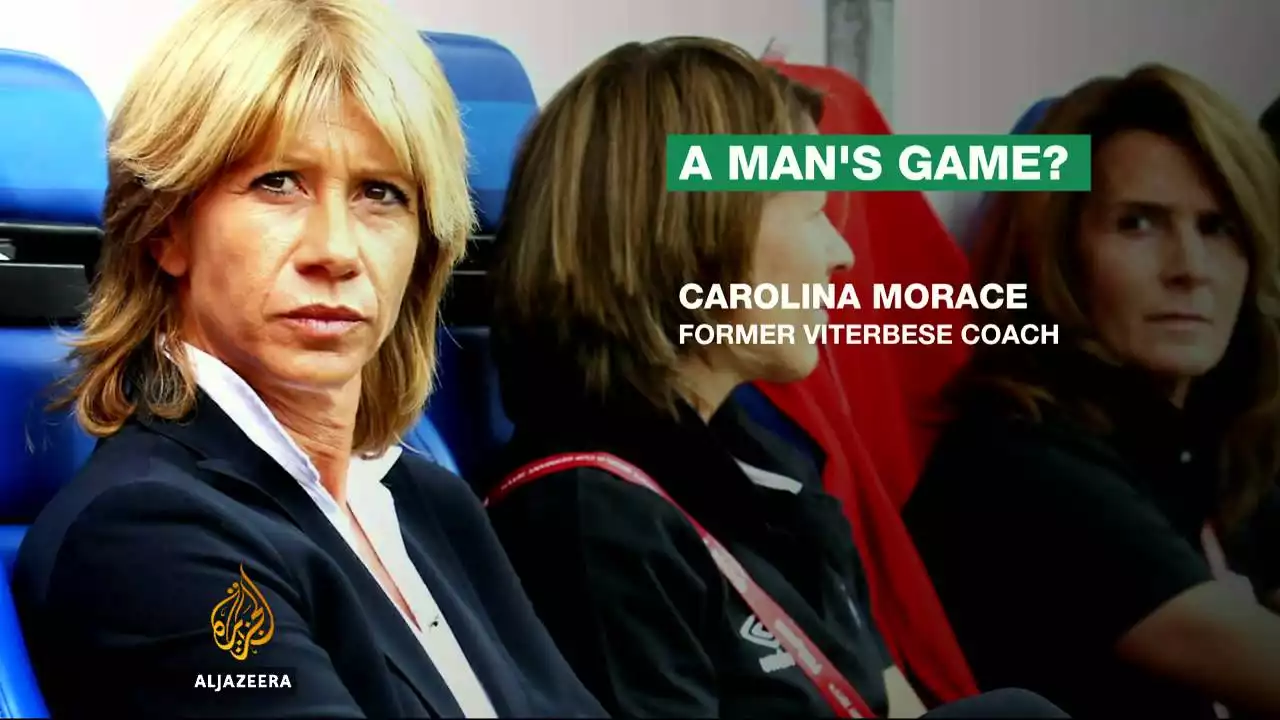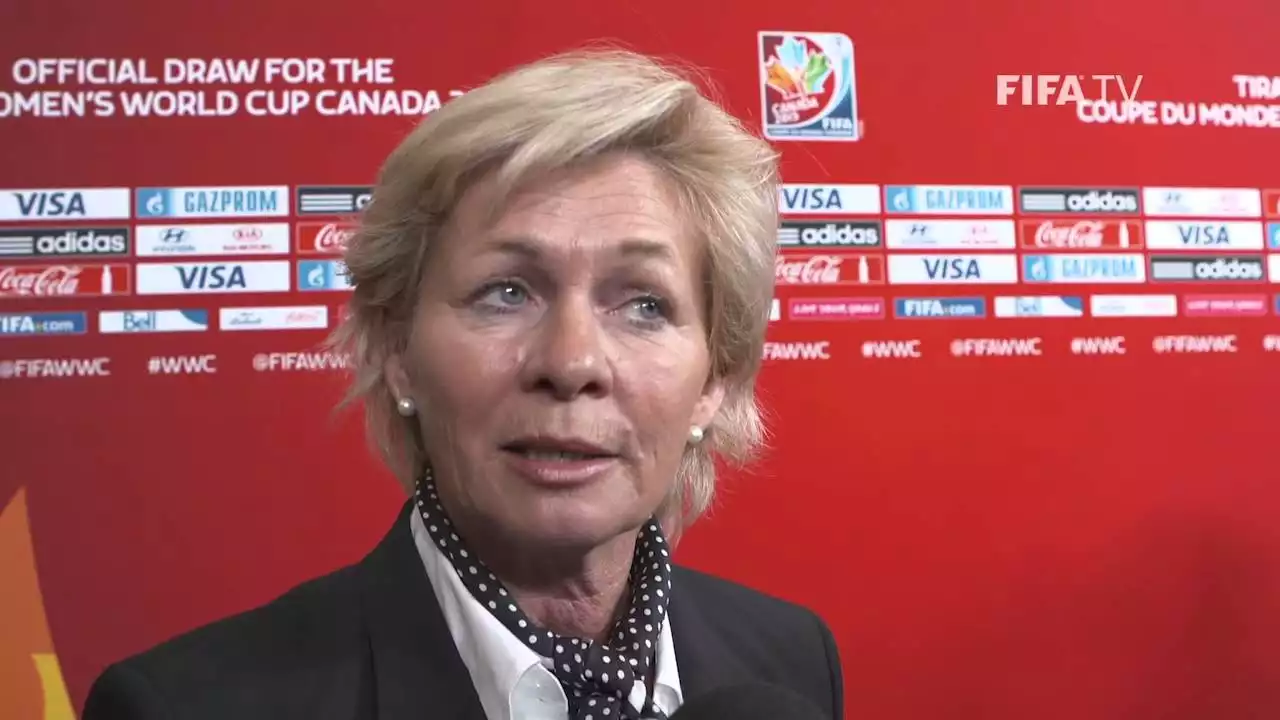The rise of women's football managers
Women's football has come a long way since its humble beginnings. Over the years, the sport has witnessed a surge in popularity and professionalism, thanks in large part to the efforts of visionary managers. These managers have defied stereotypes and challenged the status quo, proving that they have what it takes to lead successful teams.
One such pioneer is Helenio Herrera, who made history by becoming one of the first women's football managers. Known for his tactical brilliance, Herrera transformed the way the game was played, implementing innovative strategies that revolutionized women's football. His emphasis on discipline and teamwork laid the foundation for future generations of managers to build upon.
Vic Akers is another name that cannot be ignored when discussing the rise of women's football managers. As the most successful manager in Arsenal's women's football history, Akers guided the team to numerous domestic and European titles. His meticulous attention to detail and commitment to player development set the standard for excellence in women's football management.
These early pioneers paved the way for a new generation of managers who would go on to shape the landscape of European women's football. With their vision and determination, they proved that women's football is not just a passing trend, but a force to be reckoned with.
Helenio Herrera - Pioneering women's football manager
Helenio Herrera was a true trailblazer in the world of women's football management. Born in Argentina, Herrera began his career as a player before transitioning into coaching. His success in men's football caught the attention of the women's national team, and he was appointed as their manager.
Under Herrera's guidance, the team achieved unprecedented success, winning multiple continental championships and reaching new heights on the international stage. His tactical innovations, such as the implementation of a defensive strategy known as the "catenaccio," revolutionized the game and laid the groundwork for future managers to build upon.
Herrera's attention to detail and focus on discipline made him a formidable figure in women's football. He demanded excellence from his players and instilled a winning mentality that propelled the team to great heights. His legacy as a pioneering manager continues to inspire generations of female footballers to this day.
Vic Akers - Arsenal's most successful women's football manager
When it comes to women's football in England, no manager has left a bigger mark than Vic Akers. Akers, who joined Arsenal in 1987, transformed the women's team into a dominant force both domestically and in Europe. Under his leadership, Arsenal won an astonishing 32 major trophies, including 12 league titles and 10 FA Cups.
Akers' success can be attributed to his meticulous attention to detail and commitment to player development. He had an eye for talent and knew how to assemble a winning team. His ability to nurture young players and mold them into world-class athletes was unparalleled.
But it wasn't just on the field where Akers made his mark. He played a crucial role in elevating the professionalism of women's football in England, advocating for better facilities, increased media coverage, and equal pay. His dedication to the sport and its players has left a lasting legacy that continues to shape the landscape of women's football in Europe.
Patrice Lair - Lyon's dominance under his leadership
When it comes to women's football in Europe, few teams have been as dominant as Lyon. And at the helm of this powerhouse club was Patrice Lair. Under Lair's leadership, Lyon won an incredible seven consecutive UEFA Women's Champions League titles, establishing themselves as the undisputed queens of European football.
Lair's success can be attributed to his tactical brilliance and ability to build cohesive teams. He understood the strengths and weaknesses of his players and was able to maximize their potential on the field. His emphasis on teamwork and unity created a formidable force that was virtually unbeatable.
But it wasn't just on the field where Lair made his mark. He also played a crucial role in developing young talent, nurturing future stars who would go on to represent their national teams. His commitment to player development and his ability to create a winning culture have set a new standard for excellence in women's football management.
Emma Hayes - Chelsea's transformation under her guidance
Emma Hayes is a name synonymous with success in women's football management. As the manager of Chelsea Women, she has transformed the club into one of the top teams in Europe. Under her guidance, Chelsea has won multiple league titles and reached the final of the UEFA Women's Champions League.
Hayes' success can be attributed to her innovative approach to the game and her ability to motivate her players. She has a knack for identifying talent and building teams that are both competitive and entertaining to watch. Her tactical acumen and strategic thinking have earned her a reputation as one of the best managers in the world.
But it's not just her on-field success that sets Hayes apart. She is also a champion for equality in women's football, advocating for better pay and increased exposure for female players. Her commitment to the sport and her players has made her a role model for aspiring managers and players alike.
Sarina Wiegman - Leading the Netherlands to success
Sarina Wiegman is a name that needs no introduction in the world of women's football. As the manager of the Dutch national team, she has led the team to new heights, culminating in a historic victory at the 2017 UEFA Women's European Championship.
Wiegman's success can be attributed to her ability to connect with her players and create a positive team culture. She has a unique ability to inspire her players and instill a sense of belief and confidence in their abilities. Her tactical knowledge and strategic approach have made the Dutch national team a formidable force on the international stage.
But Wiegman's impact goes beyond just her success on the field. She is a strong advocate for gender equality in sports and has been vocal about the need for equal opportunities for female athletes. Her commitment to empowering women in football has made her a true pioneer in the sport.
The impact of these managers on European women's football
The impact of these managers on European women's football cannot be overstated. Their dedication, tactical brilliance, and ability to motivate their players have transformed women's football into a powerhouse within the sports industry. They have not only achieved great success on the field but have also inspired generations of female footballers to strive for greatness.
These managers have raised the bar for excellence in women's football management. They have shown that with the right vision and leadership, women's teams can compete at the highest level and achieve unprecedented success. Their innovative strategies and commitment to player development have set new standards for the sport.
But perhaps their greatest contribution lies in the inspiration they have provided to aspiring managers and players. By breaking down barriers and defying stereotypes, these managers have shown that women can excel in leadership roles in sports. They have paved the way for more opportunities for women in football and have created a platform for future generations to succeed.
The future of women's football management in Europe
As women's football continues to grow in popularity and professionalism, the future of women's football management in Europe looks bright. The success of managers like Helenio Herrera, Vic Akers, Patrice Lair, Emma Hayes, and Sarina Wiegman has paved the way for a new generation of leaders to emerge.
These managers have not only achieved success on the field but have also proven their ability to navigate the challenges of managing a women's football team. They have shown that women's football is not just a passing trend but a sport with immense potential and opportunities.
The future of women's football management lies in the hands of those who are passionate about the sport and committed to its growth. It requires leaders who are willing to challenge the status quo and push boundaries. With the right support and resources, women's football management in Europe has the potential to reach new heights.










